
Migration, refugees and asylum
'Migration is at the heart of who we are – it is the process of action, of learning. Migration is a natural celebration of human nature.' Lemn Sissay (Chancellor installation speech 2015)
The challenge
The movement of people has always been part of the human condition bringing about change in all societies, addressing some social, political and economic challenges while simultaneously creating others. Mobility and migration raise important conceptual and philosophical questions about notions of rights, citizenship and belonging. They are also central to global development agendas, when considering, for example, the role of remittances and other more intangible transfers by people on the move; the role of the state and international organisations; and the relationships between those who move and those who choose not to – or who cannot – move. Mobility also calls into question the idea of national or regional development: is it concerned with changes in a geographical location or changes in the lives of people, wherever they may move?
New technologies, shifting public and political attitudes towards people on the move and the challenges posed by climate change and conflicts across the world, will continue to shape processes of migration, mobility and transnational relations. More recently, the Covid-19 pandemic has brought into stark relief deep global inequalities that underpin the experiences of many mobile populations. The relationship between mobility and development is thus continuously changing in profound and unpredictable ways.
How we are addressing it
We pursue a range of innovative research agendas that explore and interrogate the relationship between varied and multiple forms of mobility and social, economic and political development.
Through major research grants key themes under investigation include:
- Contesting the politics of border-zones, borderscapes, encampment and containment through the lens of the postcolonial hegemonic world order.
- Examining the journey to challenge the characterisation of migration as a unilinear move from one place to another and to explore the significance of trauma, transit and sojourn in shaping movements and their outcomes.
- Understanding mobile lives through the lens of transnational lived citizenship as a category of analysis and a category of practice.
- Investigating theoretical understandings of social transformation through empirical and historical analysis of shifting social relations across generations.
- Challenging top-down economic and bureaucratic approaches to migration through an exploration of everyday agency and solidarity that includes the corporate sector, civil society, diaspora and global networks.
- Exploring the role of gender and intersectional concerns, including race, sexuality, disability and class, in shaping inequalities for migrants, their families and communities at origin and destination.
- Exploring historical processes of postcolonial mobility to de-centre western notions of adventure, travel and exploration.
Research projects
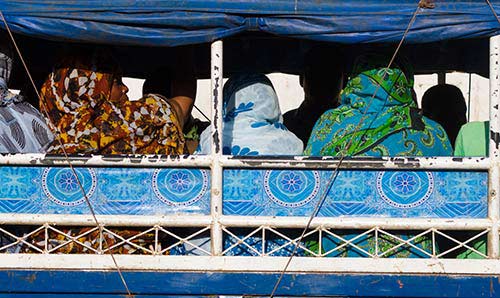
Transnational lived citizenship
Tanja Müller and Oliver Bakewell examine how diaspora populations establish different forms of political belonging.
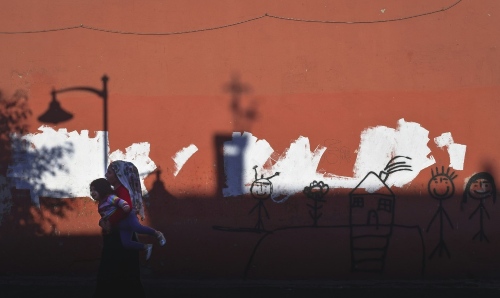
Managing Syrian refugees after the Turkish earthquake
Explores the dynamic evolution of Turkey’s migration acquis in response to the Syrian refugee crisis, focusing on the perspectives of key migration and disaster management officials.
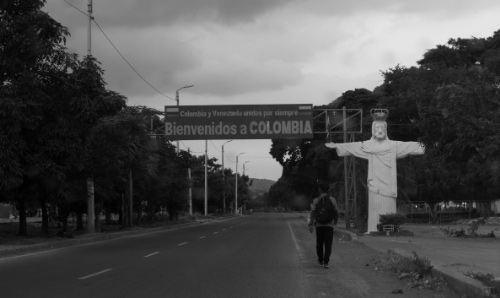
Transnational migration and Covid-19 in Latin America
Organised by Tanja Bastia's photo competition and virtual exhibition explored the theme of migration and Covid-19 in Latin America.
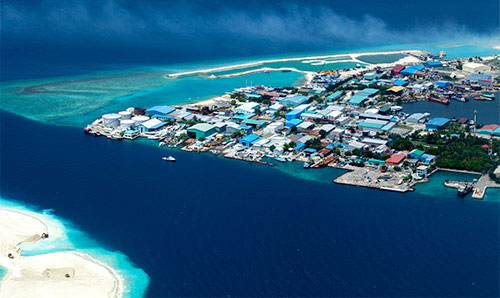
Everyday lives in the Maldives
This project explores the relationship between tourism and development and environmental sustainability and its impact on the lives and livelihoods of small-island communities.
.jpg)
Inscribing mobile lives into the urban peripheries of global displacement
This project investigated how precarious migrant lives transform and are transformed by the urban spaces where they reside, while maintaining transnational linkages.
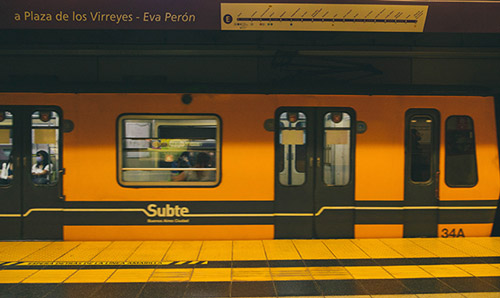
Migration and inequalities in the Global South: Neglected intersections of oppression and privilege
The project will explore disability, sexuality and the gendered experiences of skilled and highly educated migrants in the Global South.
- Poverty and income inequalities
- Migration and development in the Horn of Africa
- Gender inequalities
- EU migration management in Africa and the Middle East
- Ageing and migration
- Moving the goalposts of citizenship? German business sector engagement and refugee integration
- Migration Lab
- Perceptions and understandings of climate change and migration
- Conflict, displacement and home
- 'Memories of paradise’ – Legacies of socialist mobility
- ‘From refugee to pioneer?’ (Re-)claiming rights and a future within the Israeli asylum regime: a study among the Eritrean community of Tel Aviv
- Cosmopolitan development: The impacts of international volunteering
Our teaching agenda
We offer a dedicated Masters pathway that centres on the interactions between migration and development.
In addition, the core modules on migration and mobility can be taken as options within the following pathways:
- Global Development with Poverty and Inequality MSc
- Research Methods with International Development MSc
- Global Development MSc
We also offer supervision on any topics linked to Migration, Refugees and Asylum within the following two PhD programmes:
People and publications
Click on the names below to read their latest publications or read the latest publications from the Global Development Institute.
- Prof Tanja Bastia - Professor, International Development
- Dr Oliver Bakewell - Reader, Migration Studies
- Prof Ralitza Dimova - Professor in Development Economics
- Dr Elisa Gambino - Lecturer and Hallsworth Fellow in Global Political Economy
- Dr Gianluca Iazzolino - Lecturer in Digital Development
- Prof Uma Kothari - Professor, Migration and Postcolonial Studies
- Prof Tanja Müller - Professor in Political Sociology
There are several non-GDI colleagues who are also involved in the migration, refugees and asylum research group
- Dr Elena Barabantseva - Senior Lecturer in Chinese International Politics
- Prof Alice Bloch - Professor of Sociology
- Dr Miriam Bradley - Senior Lecturer in Humanitarian Studies, Humanitarian Conflict Response Institute
- Prof Rosemary Broad - Professor, Criminology
- Dr Jane Brooks – Senior Lecturer Nursing and Midwifery
- Dr Jessica Hawkins- Senior Lecturer in Humanitarian Studies
- Dr Sheena Kalayil - Author
- Dr Aoileann Ní Mhurchú - Lecturer in International Politics
- Dr Gunjan Sondhi - Senior Lecturer in Geography at the Open University
- Dr Louise Tomkow– NIHR Clinical Lecturer
- Prof Arkadiusz Wisniowski - Professor of Social Statistics & Demography
Honorary research fellows
- Dr Josephine Biglin
- Dr Luis Eduardo Perez Murcia
- Dr Emma Söderman
- Dr Matt Walsham
- Dr Cathy A Wilcock
- Steve Jordan
- Malte Skov - Masculinity and Migration: Nepalis in Denmark
- Andreina Carillo Espinoza - In-between nations. The transnational agenda of the Venezuelan diaspora in Spain, and Democratic Legitimacy
- Leona Yang – “Irregular migrants”, struggles for novel forms of humanitarianism: struggles and resistance
- Yuhao Ren - Internal Migration and Inequality in China
- Megan Hadfield - The impact of immigration policy on modern slavery experienced by homeless non-UK nationals in Greater Manchester
- Jiacheng Liu - Urban Stratification, Social Integration, Settlement intention of China’s Floating Population
- Jackline Wanyonyi - Security "Threats" and "Burdens": A Paradigm Shift in Institutional Responses to the Urban Economics of Protracted Displacement in Cities: Nairobi City Case Study
The migration, refugees and asylum group also works closely with PhD researchers and PDRAs from other departments. These include:
- Meena Masood, School of Politics and International Relations, Queen Mary University of London - 'The politics of vulnerability in the European ‘migrant crisis'
- Isabel Morrell, Department of Politics, Manchester University - The Everyday Lives of People Seeking Sanctuary: Borders, Belonging and Resistance
- Dr Yui Chim Lo, Department of History, Manchester University - Policies of Migration Control in Early Twentieth-Century China

